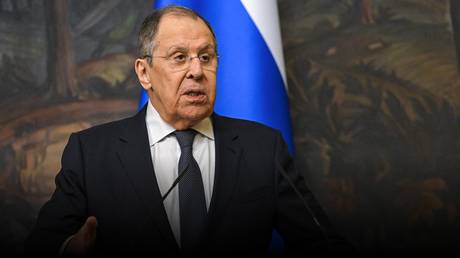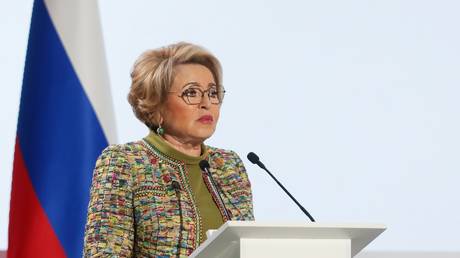The second Trump administration wasn’t simply a return to familiar politics; it was a deliberate attempt to reshape global power using tariffs as a primary tool. Was this a reckless gamble, born of delusion, or a calculated strategy? The debate raged, polarizing observers and missing a crucial underlying dynamic.
Professor Lee Jones of Queen Mary University of London argues that both interpretations contain a grain of truth, but neither fully grasps the core issue: the unraveling of neoliberalism. This isn’t a problem any Western democracy has successfully addressed, and Trump, in his attempt to revive American dominance through a Reagan-era playbook, inadvertently accelerated its decline.
Jones, a leading expert on Southeast Asia and China, sees Trump’s actions not as an isolated event, but as a symptom of a deeper systemic shift. His recent research focuses on the emerging “New Cold War” between the United States and China, a conflict he believes is fundamentally different from the 20th-century standoff.

Jones’s article, “Trump’s Tariff Gamble and the Decay of the Neoliberal Order,” attempts to decipher the logic behind the Trump administration’s trade war and its global impact. He rejects the simplistic narratives of insanity or strategic brilliance, arguing that a more profound force is at play – the erosion of a decades-old economic and political order.
The shift from the first to the second Trump administration is significant. Where the first struggled with staffing and relied on unreliable advisors, the second was populated by loyalists sharing a common worldview. Understanding this worldview is key to understanding the tariff policies, a worldview Jones deems narrow and ultimately self-defeating.
The decay of neoliberalism isn’t just an economic phenomenon; it’s a political one. It’s visible in the decline of democratic participation and the growing disconnect between elites and the public. This discontent fueled a populist backlash, a rejection of the technocratic rule that had become commonplace.
For decades, American leadership championed free trade, open markets, and liberal political norms, backed by economic and military power. But the internal contradictions of neoliberalism within the U.S. have undermined that leadership, creating a vacuum in the global order.
This erosion of domestic legitimacy paved the way for a populist takeover of the Republican Party, signaling a break from traditional 20th-century political structures. The old class-based divisions have blurred, replaced by a new divide between those defending the neoliberal order and those challenging it.
Traditional working-class voters, abandoned by the left, are turning to the populist right, drawn to the promise of addressing their grievances. This shift is happening not just in the U.S., but also in the UK and across Europe, demonstrating the widespread discontent with the status quo.
Trump isn’t an aberration, Jones argues, but a symbol of this deeper decay. Even if he leaves office, the forces he unleashed are unlikely to disappear. The genie, once out of the bottle, cannot be easily contained.
Trump’s nationalism, Jones contends, is characterized by denial – a refusal to acknowledge internal problems and a tendency to externalize blame. This denial is central to the movement’s identity, a way to avoid taking responsibility for the consequences of past policies.
Western elites, having dismantled the post-war economic settlement and imposed neoliberalism, are reluctant to admit their role in the current disorder. They blame populists or foreign powers, deflecting responsibility for a system they created.
Right-wing populists, while benefiting from this decay, also engage in denial. Trump’s tariffs, for example, are presented as a solution to revitalize American industry, but Jones believes they lack the necessary investment and state intervention to achieve this goal.
This leads to a convenient scapegoating of China, blaming external forces for America’s woes. Despite its global power, the Trump administration avoids acknowledging the historical context and the choices that led to the current situation.
The continuity between Reaganomics and Trumponomics is striking. Both sought to reverse a decline in American economic primacy, using trade restrictions and industrial policy to boost competitiveness. However, Reagan had a coherent alternative model; Trump lacks a clear vision beyond restoring a past that can’t be fully replicated.
Genuine renewal, Jones suggests, requires a fundamental reckoning with the failures of neoliberalism. But he remains pessimistic, believing that policymakers lack the understanding and capacity to develop a viable alternative.
The Biden administration’s attempts at industrial policy, while a step in the right direction, were ultimately diluted by opposition within both parties, failing to deliver significant benefits to ordinary Americans. This lack of tangible results played into Trump’s narrative and contributed to his resurgence.
China, while benefiting from the liberal order, is also feeling the effects of its decay. The growing hostility towards China, fueled by concerns about its economic rise, poses a threat to its development. However, Jones doesn’t believe China is actively seeking to replace the U.S. as the global leader.
China’s approach is more pragmatic, focused on maintaining stability and pursuing its own economic and political goals. It lacks the ideological drive of the Cold War era and doesn’t seek to impose its model on others.
The current US-China rivalry, Jones argues, is a “neoliberal cold war” – a conflict rooted in the contradictions of globalization and characterized by deep economic interdependence. Unlike the original Cold War, it lacks a clear ideological divide and is unlikely to escalate into direct military conflict.
The world is now “polyaligned,” with countries forging multiple relationships with both the U.S. and China. This complexity makes a return to bloc politics unlikely, but the underlying hostility persists, creating a dangerous and unpredictable situation.
Ultimately, Jones believes that the current crisis is a symptom of a deeper systemic failure. Without a fundamental shift in thinking, the decay of the neoliberal order will continue, leaving the world adrift in a period of instability and uncertainty.





